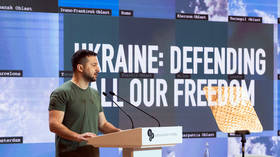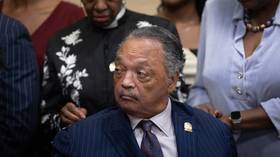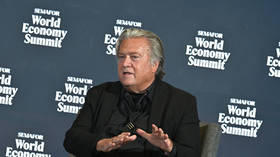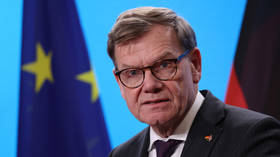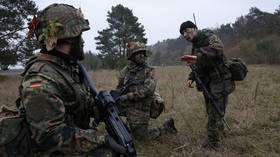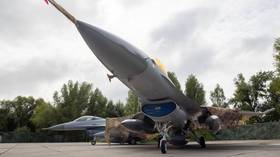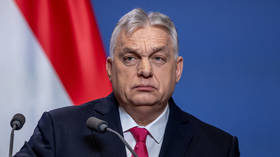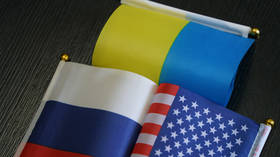Hybrid war against Russia is ‘unprecedented’ – Moscow
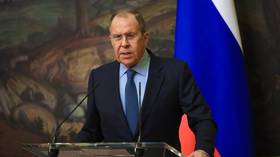
The hybrid war that the West has been waging against Russia for many years has now scaled up to an “unprecedented” level, Russian Foreign Minister Sergey Lavrov said on Tuesday.
“The aim [of the hybrid war] is being declared openly”, Lavrov explained during the ministry's Business Council meeting. The goal is “to destroy the economy, push our country to the backyard of the world politics. Recently, they’ve been calling to openly use sanctions to undermine stability in Russia,” he stated.
Lavrov stressed that the ministry’s priority is to promote sustainable relations “with all interested foreign partners” based on mutual respect and cooperation.
The Russian Foreign Ministry warned in August that the ongoing hybrid war raises the threat of a nuclear conflict, in which there can be no winners. However, according to Igor Vishnevetsky, the Foreign Ministry’s non-proliferation department deputy head, Russia remains “committed to… building a world free of nuclear weapons.”
Since the start of the hostilities in Ukraine, Washington has been top of the list of countries providing Kiev with military equipment, including Javelin anti-tank weapons, Stinger portable anti-aircraft missiles, howitzer artillery, and long-range HIMARS rockets. Early September saw the latest batch of lethal assistance, with $2.8 billion provided to Ukraine and its neighbors, bringing US military assistance for Ukraine to a total of approximately $15.2 billion since late February.
Russia sent troops into Ukraine on February 24, citing Kiev’s failure to implement the Minsk agreements, designed to give the regions of Donetsk and Lugansk special status within the Ukrainian state. The protocols, brokered by Germany and France, were first signed in 2014. Former Ukrainian President Pyotr Poroshenko has since admitted that Kiev’s main goal was to use the ceasefire to buy time and “create powerful armed forces.”
In February 2022, the Kremlin recognized the Donbass republics as independent states and demanded that Ukraine officially declare itself a neutral country that will never join any Western military bloc. Kiev insists the Russian offensive was completely unprovoked.
